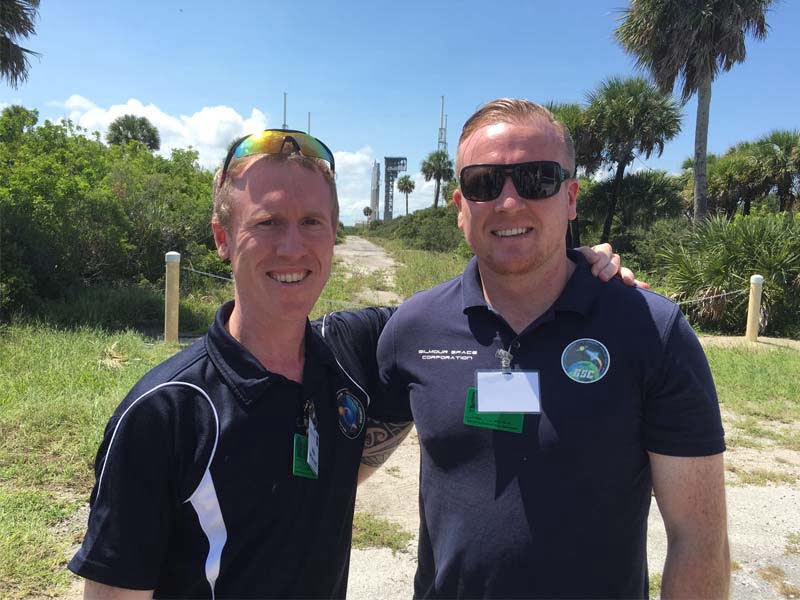There has been movement in the startup stream of the government’s struggling Global Talent Scheme, with Queensland-based Gilmour Space Technologies becoming the first to be granted a visa under the program.
The Global Talent Scheme was launched last July as a 12-month trial program, allowing Australian businesses to access fast-tracked four year visas with a pathway to permanent residency under the Temporary Skills Shortage visa class.
The scheme is split into two streams, one for established businesses with annual turnover of more than $4 million, and a startup stream for early-stage companies with turnover of less than $4 million.

Documents released under the Freedom of Information Act last week revealed that by the end of January this year, no visas had been issued under the startup stream, and only eight had been approved for established businesses.
With less than four months remaining in the pilot, there are concerns that the lack of interest and extended delays could scuttle attempts to get the scheme extended beyond its June scheduled finish.
The first visa under the startup stream has now been issued, with Gilmour Space Technologies’ application being approved in mid-February.
The visa was approved for a senior aerospace engineer, who will serve as Head of Propulsion at the space startup.
Gilmour Space Technologies founder Adam Gilmour said there was a lot of paperwork involved with the process, and it took four or five months to be approved as an eligible startup. After this though, the initial visa was processed in less than five days.
“We are developing an orbital launch vehicle. There is no domestic market for this, so we need to hire experienced engineers from overseas,” Mr Gilmour told InnovationAus.com.
“Before the GTS approval, it took many months and lots of paperwork to get visas done, and that made us very uncompetitive in hiring good people.”
The Queensland startup worked with TechVisa partner Sam Bricknell to qualify for the GTS, the same immigration firm that secured the first visa under the established business stream for SafetyCulture.
“It’s later on in the pilot side of things, but at least it’s something, and hopefully it gets the ball rolling,” Mr Bricknell told InnovationAus.com.
Startups have to first be approved under the GTS scheme, which includes being ticked off by the government’s ‘startup authority’, before being able to apply for a specific visa under the TSS scheme.
The applicant also has to advertise for the position locally for at least one month before applying for a visa to bring in someone from overseas.
“Instead of being able to show you’re a startup and then be able to access it straight away, there’s a whole process of setting up a labour agreement after you’ve been confirmed as qualifying as a startup,” Mr Bricknell said.
“There are a few steps along the way, but once you’re set up the process is much easier.”
“Specialised roles in a business like [Gilmour Space Technologies] are extremely hard to find locally. If we can find those people and they happen to be overseas then a faster turnaround under the GTS is a benefit for them.”
Mr Gilmour said the government should look at accelerating the initial approval process, and adding more jobs to the ANZSCO list.
“I am very happy the government has taken the initiative to speed up the visa process for startups,” he said.
A government press release from late last year said that only six companies in total had been approved for the GTS scheme in the first six months of the trial.
Quantum computing firm Q-CTRL was the only businesses approved in the startup stream at the time.
While the high costs of applying for the scheme has been raised as a concern by some companies, Mr Bricknell said the bigger worry for many of his clients is the long wait times in being approved under the program.
“We are still talking to a lot of clients about it. Some are interested but it’s the timeline, everyone is working to get people on board as soon as possible,” Mr Bricknell said.
“Setting up under the GTS takes a month or two to get all the information together, and that turns some people off. [The companies] have usually already identified someone and need them here now, they can’t wait the extra month.”
He also echoed other calls for startups to be exempt from the Skilling Australian Fund levy when applying for a visa.
“As part of the application you have to show that the skills of this person will be transferred to Australian employees. This person is going to come in and train up others in specialised fields. If the pilot continues on for another year, we’d hope that there would be concessions around the Skilling Australia Fund,” Mr Bricknell said.
“By having it continue and having some concessions around the levy, hopefully that will promote it a bit more and people will be more open to accessing it.”
A spokesperson for the Department of Home Affairs last week told InnovationAus.com that the GTS is a “niche pilot scheme” and the government would continue to work with industry to refine it.
Do you know more? Contact James Riley via Email.

